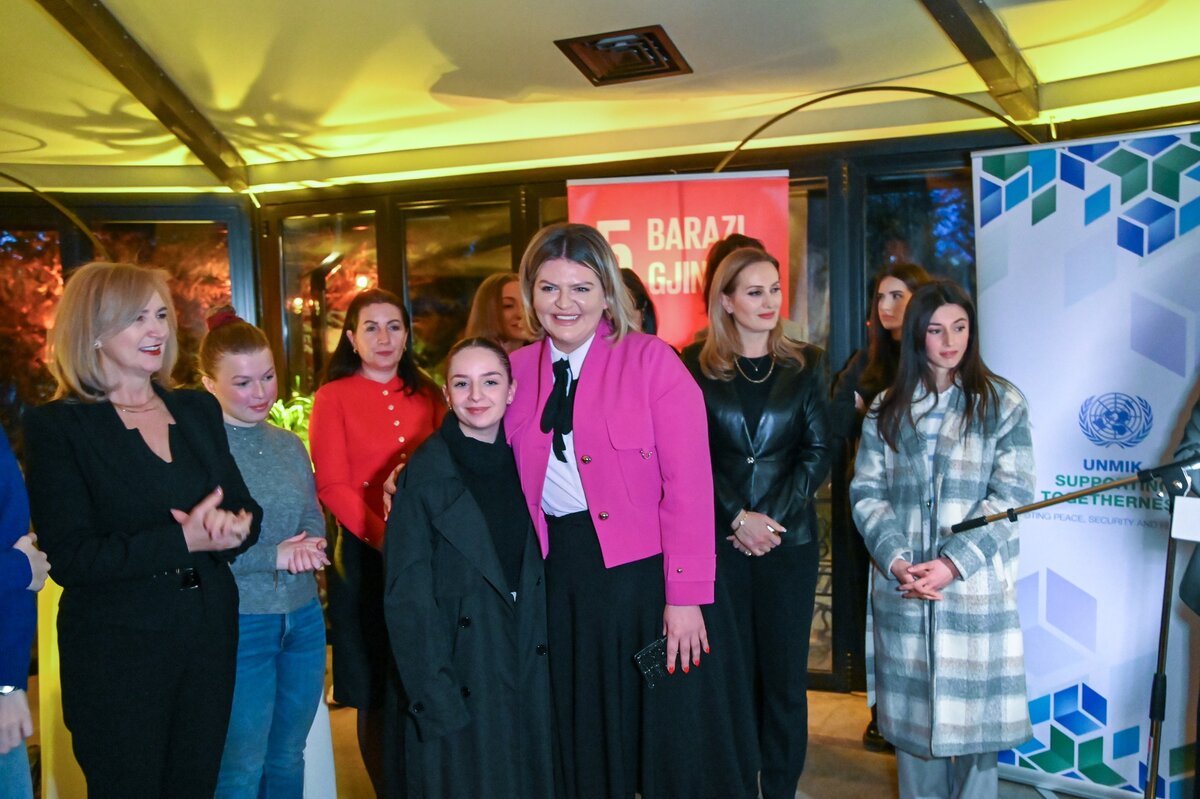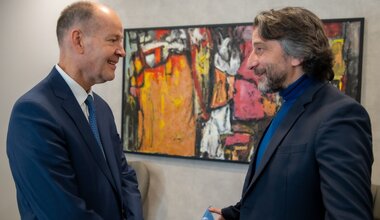Mentorship in Motion: Inside the Growing Force of Kosovo’s Future Leaders Program
The Future Leaders Mentorship Program, launched earlier in the year by UN Women and the University of Pristina, with support from UNMIK, did more than pair professionals with ambitious young women. It reshaped the way leadership was imagined across Kosovo.
In cities and communities where lines had been divisive, the program successfully built bridges between generations, sectors, and identities. More than 25 mentees, from fields as varied as law, diplomacy, linguistics, and media, were engaged in honest, practical mentorship with mentors who had already walked the path.
The result? Clearer goals, sharper skills, and a growing sense of confidence in young women who were ready to lead.
One of the mentors was the Head of UNMIK, Ms. Caroline Ziadeh, the Special Representative of the Secretary-General. For her, mentorship was not a formality; it was a conversation, one that was grounded in trust, openness, and shared purpose. “The dedication these young women brought to the table was striking,” Ziadeh noted. “This program proved that when intergenerational dialogue was genuine, it didn’t just transfer knowledge, it built leadership rooted in inclusion.”
That dialogue left a lasting impression on mentee Armira Muqolli, a 19-year-old law student, whose weekly sessions with Ziadeh helped crystallize her vision of leadership. “I came in with questions. I left with purpose,” she said. She began eyeing a future in international law and policy, with a focus on the evolving legal challenges of AI, already thinking about how to one day pass it forward.

Suzana Marić, 27, a student from Novi Sad studying in Pristina, had a different path, but a similar transformation. Being mentored by Kosovo’s former President Atifete Jahjaga gave her more than access, it gave her perspective. “She became my role model,” Suzana remarked. That kind of proximity to influence was rare; through this program, it became the norm.

For 21-year-old Edona Mulaj, mentorship opened her eyes to a more expansive view of identity and impact. Paired with Sanija Murati, the Montenegrin-Bosnian founder of NGO Lady, Edona not only gained insight into leadership but also into inclusion. “It took me a few meetings to even realize we were from different communities,” she admitted. “Her work reached everyone. That’s the kind of leader I wanted to be.”

Each of these stories was singular. But together, they spoke to something bigger: a growing movement of young women in Kosovo who were no longer waiting for permission to lead. With the backing of mentors who had broken barriers of their own, they stepped into their own power, on their own terms.
UNMIK’s Future Leaders Program was not just a training ground. It was a proving ground. And if the early results were any sign, the future of leadership in Kosovo was already in motion.

 UN
UN United Nations Peacekeeping
United Nations Peacekeeping





